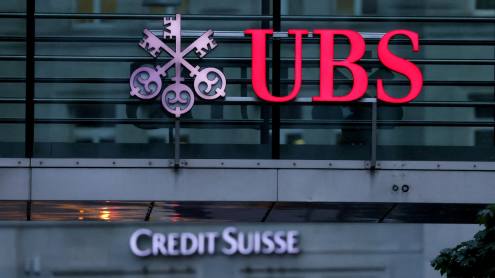Q: How did the Austrian banking sector perform in 2020 and in the first half of 2021?
A: Thanks to the build-up of macroprudential capital buffers and restrictions on dividends, as well as swift public support measures provided for companies and households, Austrian banks weathered this challenging situation well, reaching a sector-wide common equity Tier 1 ratio of more than 16%. They were therefore able to support their clients during the worst of the pandemic and the ensuing rebound.
Nevertheless, they were not able to shield themselves from the effects of the broad-based downturn, as the prospect of deteriorating credit quality led banks to a significant step-up in precautionary risk provisioning. Consequently, the Austrian banking sector’s profits dropped by nearly half in 2020, despite stable operating profits, and its return on assets was 0.4% — still substantially above the EU average.
Thankfully, this year, the sector is off to a better start, as risk costs are moderate and the ratio of non-performing loans remains low. Nonetheless, we remain cautious regarding the second half of the year, given uncertainties linked to the Delta variant and a slowing vaccination campaign.
Q: In comparison to the 2008 financial crisis, how has Austria’s banking system emerged from the Covid-19 crisis?
A: From a financial stability point of view, these two crises can hardly be compared. The financial crisis of 2008 was caused by banks’ excessive risk-taking and nearly brought the global financial system to its knees. It also took several years to digest in Europe, and some effects are still being felt today. The Covid pandemic, on the other hand, is first and foremost a public health crisis, whose potentially devastating economic effects on Austrian companies and households have been largely limited by public support measures.
Overall, Austrian banks’ exposure to CEE countries has been a success story, but not necessarily for every bank
This time, banks were not part of the problem, but rather part of the solution, and we — as a central bank — have laid some of the groundwork for this increased resilience. We never stopped work on improving the banking sector’s stability, even during quieter times, and the buffers built up allowed us to confront the pandemic’s challenges with a calm head and a steady hand.
For the banks themselves, the pandemic might even have a cathartic effect as digital solutions, such as online banking, boosted digitalisation levels and may help in cutting costs.
Q: Austria’s banks remain heavily exposed to central and eastern Europe (CEE). Do you see that as a positive or negative in the short and medium term?
A: Overall, Austrian banks’ exposure to CEE countries has been a success story, but not necessarily for every bank. This was a costly lesson learned from the global financial crisis, which has been addressed by a recovery and resolution framework that forms one of the cornerstones of the new normal for banks.
Having dealt with the legacy issues of the past, CEE remains a strategically crucial region for Austria. Given the rewarding and geographically diversified risk-return mix Austrian banks face, combined with the local knowledge and market share they built as pioneers in the region after the fall of the Iron Curtain, I see the banks’ exposure as a clear net positive in the short, medium and — dare I say — long term, both in terms of profit generation and risk diversification.
Q: Austria’s banking system is still affected by concerns over money laundering. How serious is Austria about correcting its reputation?
A: Such concerns are unfounded and are not supported by facts. Austria takes the issue of having a reputation as a clean financial market very seriously.
The regulatory and supervisory framework to fight money laundering in Austria has changed fundamentally and has been improved in line with international developments. In particular, around 10 years ago, the Austrian Financial Market Authority took over the responsibility for implementing preventive measures to fight money laundering and financing terrorism by regulated and supervised entities.
Q: How did the general economy in Austria perform over the past 18 months? Did the pandemic highlight any worrying structural issues?
A: With a high share of tourism in the economy, Austria was among the EU countries with the highest exposure to the pandemic. While the decline and rebound in overall activity in the second and third quarter of 2020 was similar to the EU and euro area average, the recovery stalled due to the loss of the very important winter season in tourism.
Currently, we are experiencing a strong economic recovery, especially in the sectors affected most by the pandemic, such as restaurants, hotels and close-contact services. If our weekly economic indicator continues its recent trend, Austria may well reach its pre-pandemic level by the end of the third quarter.












